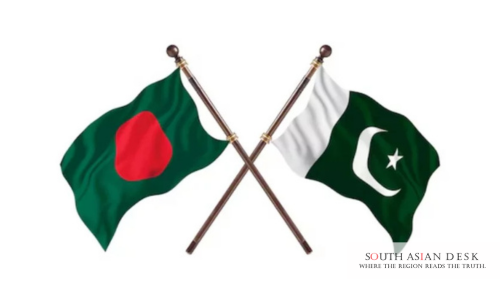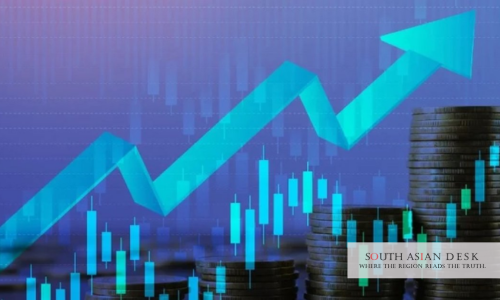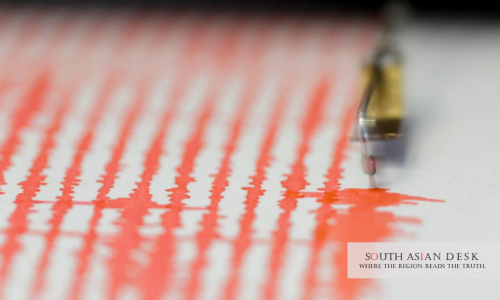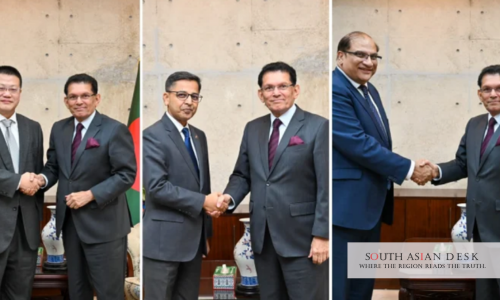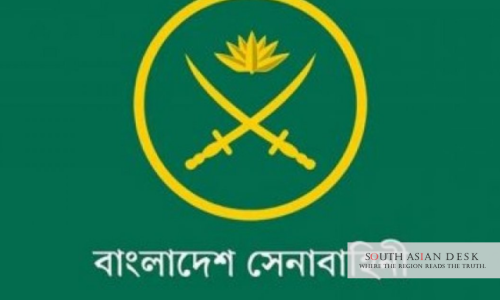DHAKA – The 9th JEC meeting between Bangladesh and Pakistan commenced on Monday at the NEC Conference Room in Sher-e-Bangla Nagar. Delegations led by Finance Adviser Dr. Salehuddin Ahmed and Petroleum Minister Ali Pervaiz Malik aim to revive economic ties that have been dormant since 2005.
The session marks the first such dialogue in two decades. It addresses bilateral trade and investment amid shifting regional dynamics.
The Bangladesh-Pakistan 9th JEC meeting holds significance for South Asia. Enhanced cooperation could spur intra-regional trade, currently at USD 5 billion annually. It eases imbalances and fosters stability post-Bangladesh’s July uprising. Neighbours like India and Afghanistan benefit from stabilised supply chains and reduced tensions.
Bangladesh Pakistan Trade Talks 2025 Focus on Imbalance
Delegates opened discussions on key sectors. Pakistan imports USD 787 million worth from Bangladesh, while exports stand at USD 80 million. Officials aim to reverse the trend through tariff cuts and increased market access. Dr Salehuddin Ahmed chairs Bangladesh’s side. He emphasises mutual growth. Ali Pervaiz Malik leads Pakistan. He highlights energy and textiles.
Pre-meeting consultations set the tone. General Sahir Shamshad Mirza, Chairman of the Joint Chiefs of Staff Committee, met Chief Adviser Prof Muhammad Yunus on Saturday. Mirza stated, “Our two countries will support each other.” He stressed trade connectivity expansion. Yunus focused on broader challenges. He noted, “Fake news and disinformation have flooded social media.” Yet bilateral focus prevails.
The Bangladesh Pakistan trade talks 2025 extend to agriculture and manufacturing. Jute emerges as a priority. Pakistan expressed interest in Bangladeshi jute, known as golden fibre.
JEC Dhaka Economic Cooperation Targets MoUs
The JEC Dhaka economic cooperation agenda includes potential memoranda of understanding. One involves halal certification between the Bangladesh Standards and Testing Institution and the Pakistan Halal Authority. Sources confirm signature during sessions. Other pacts are near finalisation. They cover energy swaps and technology transfer. Officials discuss special economic zones for joint ventures. Shipping links bolster ties. The Karachi-Chattogram route operates two-way. The Dhaka-Karachi air corridor is set to launch soon, according to pre-talks.
Energy cooperation features prominently. Pakistan offers liquefied natural gas. Bangladesh seeks technical aid in renewables. Trade facilitation committee form. They monitor progress quarterly. Digital platforms aid customs clearance. The JEC Dhaka economic cooperation revives 2005 commitments. That eighth session yielded five MoUs on similar fronts.
Background: Dormant Ties Since Partition
Bilateral relations have evolved since the 1971 separation. Early JECs built frameworks. In 2001, Islamabad addressed textiles. Stagnation followed due to political strains. Trade dipped below potential. Bangladesh’s garment sector eyes Pakistani markets.
Pakistan’s economy faces challenges. GDP growth is projected at 2.5 percent for FY26, according to the IMF. Bangladesh projects 6.5 per cent. Remittances flow both ways. USD 100 million annually supports families. Cultural exchanges underpin economics. Shared heritage aids people-to-people links.
Post-uprising Bangladesh resets foreign policy. It prioritises the neighbourhood first. Pakistan aligns with this through the revival of JEC. The Economic Relations Division planned this ninth round for the 2024-25 annual report. It notes “The 8th JEC Meeting Bangladesh-Pakistan Joint Economic Commission (JEC) held in 2005 in Dhaka, Bangladesh.”
JEC Dhaka Economic Cooperation and Regional Spillover
South Asian integration gains momentum. SAARC trade hovers at 5 per cent of the total. Bangladesh and Pakistan’s 9th JEC meeting could model pacts. India observes closely. Enhanced Dhaka-Islamabad commerce impacts trilateral dynamics. Afghanistan benefits from stable borders. Energy corridors extend reach. Challenges persist. Non-tariff barriers hinder flows. Currency fluctuations add risks.
Delegates pledge resolution. Joint working groups will be activated by December. Pakistan imports pharmaceuticals from Bangladesh worth USD 50 million. The company aims to expand to USD 200 million by 2027. Bangladesh seeks cement and surgical goods. Diversification reduces reliance on third markets.
Bangladesh Pakistan Trade Talks 2025 Eye Energy Pacts
Sessions delve into hydrocarbons. Pakistan proposes joint exploration in the Bay of Bengal. Bangladesh welcomes expertise. Technology transfer includes IT and biotech. Pakistani firms eye Dhaka’s startup ecosystem.
Investment forums follow JEC. They attract USD 500 million pledges. Women-led enterprises feature. Quotas ensure gender balance in delegations. The Bangladesh-Pakistan trade talks 2025 align with the SDGs. Sustainable development frames discussions. Monitoring mechanisms track implementation. Annual reviews gauge success.
What’s Next for Bangladesh, Pakistan 9th JEC Meeting
Talks conclude on Tuesday. Final communique outlines roadmap. Follow-up visits schedule for Q1 2026. Islamabad hosts the next JEC. Stakeholders anticipate a 15 percent trade growth. Chambers of commerce endorse. The Bangladesh-Pakistan 9th JEC meeting signals a thaw. It paves the way for an enduring partnership.
Published in SouthAsianDesk, October 27th, 2025
Follow SouthAsianDesk on X, Instagram, and Facebook for insights on business and current affairs from across South Asia.


